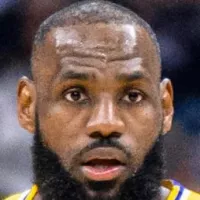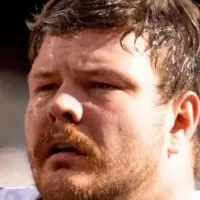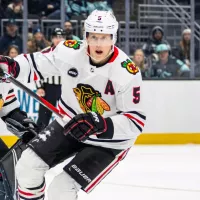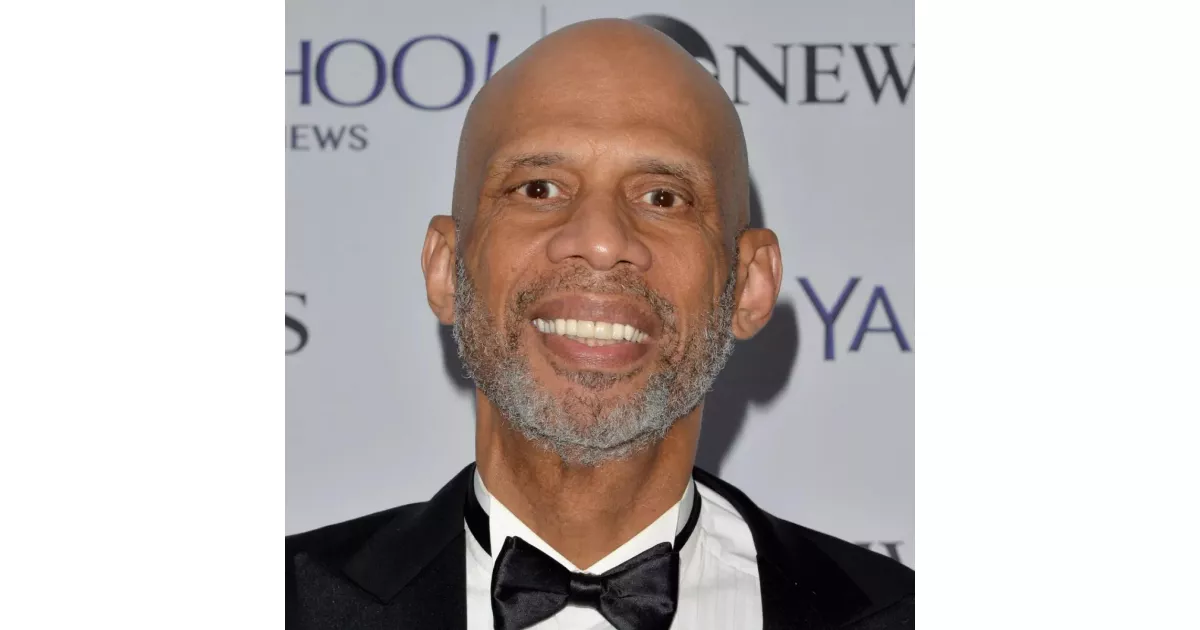Kareem Abdul-Jabbar is an American former professional basketball player widely regarded as one of the greatest of all time. He played 20 seasons in the NBA for the Milwaukee Bucks and Los Angeles Lakers, achieving remarkable success. A Hall of Fame member, he holds a record six NBA MVP awards. Abdul-Jabbar was a 19-time All-Star, 15-time All-NBA Team member, and 11-time All-Defensive Team selection. He won six NBA championships as a player and two as an assistant coach, earning two Finals MVP awards. He was named to three NBA anniversary teams. He held the NBA's career scoring record from 1984 until 2023.
April 16, 1947: Birth of Kareem Abdul-Jabbar
On April 16, 1947, Ferdinand Lewis Alcindor Jr., later known as Kareem Abdul-Jabbar, was born. He would become a celebrated basketball player.
1950: Moved to Dyckman Street projects
In 1950, at the age of 3, Ferdinand Lewis Alcindor Jr. moved with his family to the Dyckman Street projects in the Inwood neighborhood of Upper Manhattan.
1957: Zero Hour! Inspiration
In 1957, Zero Hour! a drama film starring Elroy "Crazylegs" Hirsch was released, which would later become the main source of inspiration for Airplane!.
1964: Harlem Riot and Political Awakening
In 1964, the Harlem riot, triggered by the shooting of James Powell, ignited Alcindor's interest in racial politics and shaped his identity.
November 27, 1965: First Public Performance at Pauley Pavilion
On November 27, 1965, Alcindor made his first public performance in UCLA's annual varsity–freshman exhibition game at Pauley Pavilion, where the freshman team defeated the varsity team 75–60.
1966: Varsity Debut and National Coverage
In 1966, Alcindor made his varsity debut as a sophomore and received national coverage, scoring 56 points in his first game and leading UCLA to an undefeated season and national championship.
1967: Attendance at the Cleveland Summit
In 1967, Abdul-Jabbar was the only college athlete to attend the Cleveland Summit, a meeting of prominent black athletes who convened in support of Muhammad Ali's refusal to fight in the Vietnam War.
1967: National Player of the Year and NCAA Champion
In 1967, Alcindor was named national player of the year and won the NCAA basketball championship with UCLA.
January 12, 1968: Eye Injury
On January 12, 1968, Alcindor suffered a scratched left cornea during a game against California, which later led him to wear goggles for eye protection throughout his career.
1968: Conversion to Islam and Olympics Boycott
During the summer of 1968, Alcindor converted to Sunni Islam from Catholicism. He also boycotted the 1968 Summer Olympics to protest the unequal treatment of African Americans in the United States.
1968: National Player of the Year and NCAA Champion
In 1968, Alcindor was named national player of the year and won the NCAA basketball championship with UCLA.
1968: Riley Guarantees Lakers Win Consecutive Titles
In 1988, Pat Riley guaranteed that the Lakers would be the first NBA team to win consecutive titles since the 1968-69 Celtics.
1969: Graduation from UCLA
In 1969, Alcindor earned a Bachelor of Arts degree with a major in history from UCLA. He also practiced martial arts in his free time, including learning Jeet Kune Do under Bruce Lee.
1969: Third Time National Player of the Year and NCAA Champion
In 1969, Alcindor was named national player of the year for the third time and won his third NCAA basketball championship with UCLA. He also became the first-ever Naismith College Player of the Year.
1969: Drafted by the Milwaukee Bucks
In 1969, Lew Alcindor was drafted first overall by the Milwaukee Bucks in the NBA draft, marking the start of his professional basketball career.
February 21, 1970: Scored 51 points vs. SuperSonics
On February 21, 1970, Alcindor scored 51 points in a 140-127 win over the SuperSonics.
1970: Acquisition of Oscar Robertson
In 1970, the Milwaukee Bucks acquired All-Star guard Oscar Robertson, setting the stage for their championship run.
June 3, 1971: Kareem Abdul-Jabbar Announces Name Change
On June 3, 1971, during a press conference at the State Department, Alcindor announced that he would be known as Kareem Abdul-Jabbar, a Muslim name meaning roughly "noble one, servant of the Almighty".
1971: Conversion to Islam
At age 24 in 1971, Alcindor converted to Islam and legally became Kareem Abdul-Jabbar, meaning "noble one, servant of the Almighty".
1971: Marriage to Janice Brown
In 1971, Abdul-Jabbar married Habiba Abdul-Jabbar (born Janice Brown) after meeting her at a Lakers game.
1971: NBA Championship and MVP Award
In 1971, Kareem Abdul-Jabbar won his first NBA Most Valuable Player Award, led the league in scoring, and led the Milwaukee Bucks to an NBA title, winning the Finals MVP award.
1971: Public Use of Kareem Abdul-Jabbar Name
In 1971, Lew Alcindor began publicly using the Arabic name Kareem Abdul-Jabbar, after converting to Sunni Islam in 1968.
1972: Film Debut
In 1972, Abdul-Jabbar made his film debut in Bruce Lee's Game of Death.
1972: Appearance in "Game of Death"
In 1972, Kareem Abdul-Jabbar appeared in the film "Game of Death" starring Bruce Lee, showcasing his martial arts skills, as he had trained in Jeet Kune Do under Lee.
1972: Freshmen Eligibility Rule Change
In 1972, freshmen were made eligible to play varsity. Before this change, Alcindor was relegated to the freshman team during his first year with the Bruins.
1973: 1973-74 NBA Season
Defensive rebounds were first recorded in NBA history during the 1973-74 NBA Season
1973: Pilgrimage to Libya and Saudi Arabia
In 1973, Abdul-Jabbar embarked on a pilgrimage to Libya and Saudi Arabia to learn Arabic for self-study of the Quran.
September 1974: Robertson Retires After Contract Dispute
In September 1974, Oscar Robertson retired after he was unable to agree on a contract with the Milwaukee Bucks.
1974: Started Wearing Goggles
In 1974, Abdul-Jabbar began wearing his trademark goggles after getting poked in the eye during preseason.
1974: Abdul-Jabbar Leads Bucks to Division Title and Wins MVP
In 1974, Kareem Abdul-Jabbar led the Milwaukee Bucks to their fourth consecutive Midwest Division title and won his third MVP Award in four years. He was among the top five NBA players in scoring, rebounding, blocked shots, and field goal percentage in 1974. The Bucks advanced to the 1974 NBA finals, losing to the Boston Celtics in seven games.
1974: Blocks Recorded
In 1974, the statistic of blocks was recorded, after four years in Kareem's career.
March 13, 1975: Abdul-Jabbar Requests Trade
On March 13, 1975, it was reported that Kareem Abdul-Jabbar requested a trade to either New York or Los Angeles, preferably to the Knicks, confirming his desire to play in another city after a loss to the Lakers.
1975: Abdul-Jabbar Breaks Hand Punching Backboard
In 1975, Kareem Abdul-Jabbar broke the same bone in his right hand after he punched the backboard support.
1975: Traded to the Los Angeles Lakers
In 1975, Kareem Abdul-Jabbar was traded to the Los Angeles Lakers, where he would spend the final 14 seasons of his NBA career and become a key player in the Showtime era.
1975: Lakers Acquire Abdul-Jabbar
In 1975, the Los Angeles Lakers acquired Kareem Abdul-Jabbar and Walt Wesley from the Milwaukee Bucks. He had a dominating season, averaging 27.7 points per game and leading the league in rebounding, blocked shots, and total minutes played in 1975.
1976: Lakers Acquire Draft Pick from Jazz
In 1976, the Los Angeles Lakers acquired the draft pick from the New Orleans Jazz, later Utah, that would be used to select Magic Johnson in 1979. League rules at the time required the Jazz to compensate the Lakers for their signing of free agent Gail Goodrich.
1976: Started Yoga
In 1976, while in Los Angeles, Abdul-Jabbar started doing yoga to improve his flexibility, becoming notable for his physical fitness regimen.
1976: Abdul-Jabbar Leads Lakers to Best Record, Wins MVP
In the 1976-77 season, Kareem Abdul-Jabbar helped lead the Los Angeles Lakers to the best record in the NBA and won his fifth MVP award. He led the league in field goal percentage and was among the top in scoring, rebounds, and blocked shots in 1976.
1976: Rescinding of Dunk Ban
In the 1976-77 season, the ban on dunking in college basketball (the "Alcindor Rule") was rescinded.
1977: Abdul-Jabbar Breaks Hand Punching Benson
Two minutes into the opening game of the 1977-78 season, Kareem Abdul-Jabbar broke his right hand punching Milwaukee's Kent Benson in retaliation to an elbow. He missed almost two months and 20 games as a result.
1978: Divorce from Janice Brown
In 1978, Abdul-Jabbar and Janice Brown divorced.
1978: Signed Sneaker Endorsement Deal with Adidas
In 1978, Abdul-Jabbar became the first NBA player to sign a sneaker endorsement deal with Adidas and subsequently had his signature shoe.
1978: Abdul-Jabbar Misses All-Star Game Selection
In 1978, Kareem Abdul-Jabbar was not named to the NBA All-Star Game, the only time in his 20-year career he was not selected.
1978: Lakers Eliminated by SuperSonics in Playoffs
In 1978, the Los Angeles Lakers were eliminated by the Seattle SuperSonics in the first round of the playoffs.
1979: Abandoned Goggles
In 1979, Abdul-Jabbar stopped wearing his goggles during the playoffs.
1979: Lakers Draft Magic Johnson
In 1979, the Los Angeles Lakers selected Magic Johnson with the first overall pick of the NBA draft, paving the way for the Lakers' Showtime dynasty of the 1980s.
1979: Lakers Eliminated by SuperSonics in Playoffs
In 1979, the Los Angeles Lakers were eliminated by the Seattle SuperSonics in the semifinals of the playoffs.
1979: Jazz Move to Las Vegas Valley
In 1979-80 season, the Utah Jazz moved from New Orleans to the Las Vegas Valley.
1979: Gained weight after switching equipment
Prior to the 1979–80 season, Abdul-Jabbar gained 10 pounds (4.5 kg) from 240 to 250 pounds (110 kg) after switching from free weights to Nautilus equipment. He also switched that offseason from tai chi to yoga.
October 1980: Resumed Wearing Goggles
In October 1980, Abdul-Jabbar resumed wearing goggles after being accidentally poked in the right eye by Houston's Rudy Tomjanovich.
1980: Abdul-Jabbar Wins Sixth MVP and Leads Lakers to Championship
In 1979-80, Kareem Abdul-Jabbar won his record sixth MVP award and led the Los Angeles Lakers to the NBA championship in 1980. He sprained his ankle in Game 5 of the finals but returned to finish the contest with 40 points.
1980: Sixth MVP Award
In 1980, Abdul-Jabbar claimed his sixth and final MVP award.
1980: Airplane! Role
In 1980, Abdul-Jabbar played co-pilot Roger Murdock in Airplane!, parodying Elroy "Crazylegs" Hirsch's role in Zero Hour! and engaging in a comedic scene about his basketball performance.
1980: Jazz Move to Las Vegas Valley
In 1980-81 season, the Utah Jazz moved from New Orleans to the Las Vegas Valley.
1981: Response to Criticism
In 1981, Abdul-Jabbar responded to criticism about his hustle, explaining that he had to conserve energy due to playing 42 to 45 minutes a night.
1981: Lakers Win Another Championship
The Los Angeles Lakers won another championship in 1981-82, but Kareem Abdul-Jabbar suffered migraines in the finals, averaging just 18 points per game against Philadelphia.
December 22, 1983: Abdul-Jabbar's Scoring Dips Due to Illness
On December 22, 1983, Kareem Abdul-Jabbar scored 10 points at Golden State, dropping his season average to 17.7 due to a bout with viral hepatitis during training camp.
1983: Publication of Giant Steps
In 1983, Abdul-Jabbar's autobiography "Giant Steps", co-authored with Peter Knobler, was published. It was his first book.
1983: House Fire and Loss of Belongings
In 1983, Abdul-Jabbar's house burned down, destroying many of his belongings including his jazz LP collection.
1983: 76ers Sweep Lakers in NBA Finals
In 1983, the Philadelphia 76ers swept the Los Angeles Lakers in the NBA Finals, with Moses Malone being named the Finals MVP after outrebounding Kareem Abdul-Jabbar.
April 5, 1984: Abdul-Jabbar Breaks Scoring Record
On April 5, 1984, Kareem Abdul-Jabbar broke Wilt Chamberlain's record for most career points in the NBA, scoring from 15 feet on his patent skyhook over Mark Eaton.
December 5, 1984: Abdul-Jabbar Agrees to Contract Extension
On December 5, 1984, Kareem Abdul-Jabbar agreed to a one-year, $2 million contract extension with the Los Angeles Lakers.
1984: Tales from the Darkside Role
In 1984, Abdul-Jabbar played a genie in a lamp in an episode of Tales from the Darkside.
1984: Broke NBA Career Scoring Record
In 1984, Kareem Abdul-Jabbar broke the NBA's career scoring record, cementing his status as a top scorer in the league.
November 12, 1985: Abdul-Jabbar Signs Contract Extension
On November 12, 1985, Kareem Abdul-Jabbar signed a one-year extension of his contract with the Lakers at the same $2 million salary, while maintaining the option to retire after the 1985-86 season.
1985: Abdul-Jabbar Wins Finals MVP
In 1985, Kareem Abdul-Jabbar won his second Finals MVP, becoming the oldest to win the award at 38 years old. He averaged 25.7 points in the series against the Boston Celtics. After a poor performance in Game 1, he bounced back with 30 points in Game 2, leading the Lakers to victory.
1985: Riley's Statement
In 1985, Riley toasted Abdul-Jabbar as the greatest player ever, citing his records, championships, and endurance.
December 1986: Missed Games Due to Corneal Erosion Syndrome
In December 1986, Abdul-Jabbar missed three games due to corneal erosion syndrome, a condition he developed after years of being jabbed in the eyes.
1986: Abdul-Jabbar Plays in 17th Season
In 1985-86, Kareem Abdul-Jabbar played in his 17th season, breaking the previous NBA record for seasons played of 16. He maintained the option to retire after the season in 1986.
1986: Increased Weight
In 1986, Abdul-Jabbar bulked up to 270 lb (120 kg), utilizing a bigger frame for guarding under the basket.
1987: Lakers Win Championship Over Celtics
The Los Angeles Lakers advanced to the NBA Finals in each of Kareem Abdul-Jabbar's final three seasons, starting with a championship over Boston in 1987.
1988: Lakers Win Championship over Pistons
In 1988, the Los Angeles Lakers defeated the Detroit Pistons for the championship, marking their first consecutive titles since the 1968-69 Celtics.
1989: Lakers Lost to the Pistons in NBA Finals
In 1989 the Lakers lost to the Pistons in a four-game sweep in the NBA Finals.
1989: Retirement from the NBA
In 1989, at the age of 42, Kareem Abdul-Jabbar retired from the NBA. At the time of his retirement, he held several NBA regular season career records.
February 10, 1994: In Living Color Appearance
On February 10, 1994, Abdul-Jabbar appeared on the sketch comedy television series In Living Color.
1994: Co-Executive Producer
In 1994, Abdul-Jabbar was the co-executive producer of the TV film The Vernon Johns Story.
1995: Interest in Coaching
In 1995, Abdul-Jabbar expressed an interest in coaching and imparting the knowledge he gained during his playing days, though opportunities were limited. He was perceived as introverted and unfriendly with the media, which created the impression of being aloof.
1998: Settlement in Lawsuit against Karim Abdul-Jabbar
In 1998, Abdul-Jabbar reached a settlement after suing Miami Dolphins running back Karim Abdul-Jabbar for profiting off his name, leading to the younger Abdul-Jabbar changing his jersey nameplate.
1998: Volunteer Coach at Alchesay High School
In 1998, Abdul-Jabbar served as a volunteer coach at Alchesay High School on the Fort Apache Indian Reservation in Whiteriver, Arizona.
2002: Oklahoma Storm Head Coach
In 2002, Abdul-Jabbar served as the head coach of the Oklahoma Storm of the United States Basketball League, leading the team to the league's championship that season.
2005: Special Assistant Coach for the Lakers
In 2005, Abdul-Jabbar returned to the Lakers as a special assistant coach to Phil Jackson for six seasons, where he mentored young center Andrew Bynum.
2006: The Colbert Report Appearance
In 2006, Abdul-Jabbar appeared on The Colbert Report in a skit called "HipHopKetball II: The ReJazzebration Remix '06".
2007: Named Best Center by ESPN
In 2007, Abdul-Jabbar was voted the best center of all time by ESPN, ahead of Wilt Chamberlain.
2007: Named Greatest Center of All Time
In 2007, ESPN named Kareem Abdul-Jabbar the greatest center of all time, recognizing his exceptional contributions to basketball.
December 2008: Diagnosis of Leukemia
In December 2008, Abdul-Jabbar was diagnosed with Philadelphia chromosome-positive chronic myeloid leukemia, a cancer of the blood and bone marrow.
2008: Appearance as Stage Manager
In 2008, Abdul-Jabbar appeared on The Colbert Report as a stage manager sent on a mission to find Nazi gold.
2008: Named Greatest College Basketball Player
In 2008, ESPN named Kareem Abdul-Jabbar the greatest player in college basketball history, highlighting his remarkable collegiate career.
November 2009: Announcement of Leukemia Diagnosis
In November 2009, Abdul-Jabbar announced that he was suffering from Philadelphia chromosome-positive chronic myeloid leukemia, a cancer of the blood and bone marrow, which had been diagnosed in December 2008.
February 10, 2011: Debut of film On the Shoulders of Giants
On February 10, 2011, Abdul-Jabbar debuted his film "On the Shoulders of Giants", documenting the New York Renaissance professional basketball team, at Science Park High School in Newark, New Jersey. The event was simulcast live.
February 2011: Announcement of Remission, Clarification Follows
In February 2011, Abdul-Jabbar initially announced via Twitter that his leukemia was gone, but he later clarified that his cancer was at an absolute minimum.
2011: The Simpsons Voice Role
In 2011, Abdul-Jabbar voiced himself in an episode of The Simpsons titled "Love Is a Many Strangled Thing".
2011: Awards Received in 2011
In 2011, Abdul-Jabbar was awarded the Double Helix Medal for cancer research awareness and received an honorary degree from New York Institute of Technology.
2011: End of Lakers Coaching Tenure
In 2011, Abdul-Jabbar's six-season tenure as a special assistant coach for the Lakers came to an end.
January 2012: Appointment as Cultural Ambassador
In January 2012, Abdul-Jabbar was appointed as a cultural ambassador for the United States by Secretary of State Hillary Clinton and traveled to Brazil to promote education for local youths.
2012: Guys with Kids Recurring Role
From 2012 to 2013, Abdul-Jabbar had a recurring role as himself on the NBC series Guys with Kids.
2012: Selected as U.S. Global Cultural Ambassador
In 2012, Kareem Abdul-Jabbar was selected by Secretary of State Hillary Clinton to serve as a U.S. global cultural ambassador, indicating his influence and respect on an international level.
2013: Guys with Kids Recurring Role
From 2012 to 2013, Abdul-Jabbar had a recurring role as himself on the NBC series Guys with Kids.
2013: End of Coaching Career
In 2013, Abdul-Jabbar moved on from coaching after unsuccessfully lobbying for head coach positions with UCLA and the Milwaukee Bucks.
2013: Participation in Splash
In 2013, Abdul-Jabbar participated in the ABC reality series "Splash", a celebrity diving competition.
2013: Erving's Statement
In 2013, Julius Erving stated that Kareem Abdul-Jabbar is the number one player of all-time, the guy to start a franchise with.
November 2014: Publication of Essay in Jacobin
In November 2014, Abdul-Jabbar published an essay in Jacobin advocating for just compensation for college athletes, arguing against the "indentured servitude" of college athletes.
2014: Parody Commercial
In 2014, Abdul-Jabbar and Airplane! co-star Robert Hays reprised their Airplane! roles in a parody commercial promoting Wisconsin tourism.
2014: UCLA Bruins wore "The Blueprint" Crazy 8
In 2014, the UCLA Bruins wore "The Blueprint" Crazy 8 against Colorado on Feb. 13, and the shoes were sold online and at an Adidas store in New Orleans—during NBA All-Star weekend—starting on Feb. 14.
January 25, 2015: Appearance on Meet the Press
On January 25, 2015, Abdul-Jabbar appeared on "Meet the Press" to discuss his column arguing that Islam should not be blamed for the actions of violent extremists. He also spoke about his faith.
April 2015: Hospitalization and Heart Surgery
In April 2015, Abdul-Jabbar was admitted to the hospital and diagnosed with cardiovascular disease. Later that week, on his 68th birthday, he underwent quadruple coronary bypass surgery.
2015: Adult Fiction Debut with Mycroft Holmes
In 2015, Abdul-Jabbar made his adult fiction writing debut with the Victorian mystery novel "Mycroft Holmes", co-written with Anna Waterhouse.
2015: ESPN Ranking
In 2015, ESPN named Abdul-Jabbar the best center in NBA history and ranked him No. 2 behind Michael Jordan among the greatest NBA players ever.
2015: Appearance in Kareem: Minority of One
In 2015, Kareem Abdul-Jabbar appeared in "Kareem: Minority of One", an HBO documentary about his life.
2016: Tribute to Muhammad Ali
In 2016, Abdul-Jabbar performed a tribute to his friend Muhammad Ali along with Chance the Rapper.
2016: Presidential Medal of Freedom
In 2016, Abdul-Jabbar received the Presidential Medal of Freedom.
2016: Rookie Card Sold
In 2016, Abdul-Jabbar's only recognized rookie card became the most expensive basketball card ever sold, going for $501,900 at auction.
January 2017: Appointment to Citizens Coinage Advisory Committee
In January 2017, Abdul-Jabbar was appointed to the Citizens Coinage Advisory Committee by United States Secretary of the Treasury Steven Mnuchin due to his interest in coin collecting.
2017: Good Goodbye Music Video Appearance
In 2017, Abdul-Jabbar appeared in the music video for "Good Goodbye" by Linkin Park, playing a warlord or emperor role.
2017: Condemnation of Donald Trump's Travel Ban
In 2017, Abdul-Jabbar commented on Donald Trump's travel ban, condemning it and describing the absence of reason and compassion as "pure evil".
2017: Speech at Ramadan Event
In 2017, Abdul-Jabbar spoke at a Ramadan event organized by the Israeli consul in Los Angeles, emphasizing Muslim-Jewish relations and cross-cultural exchange.
April 2018: Competition on Dancing with the Stars
In April 2018, Abdul-Jabbar competed in season 26 of "Dancing with the Stars", partnering with Lindsay Arnold.
September 2018: Announced as Writer for Veronica Mars Revival
In September 2018, Abdul-Jabbar was announced as one of the writers for the July 2019 revival of "Veronica Mars".
2018: Publication of Mycroft and Sherlock
In 2018, Abdul-Jabbar co-authored "Mycroft and Sherlock" with Anna Waterhouse, which is the second book in the Mycroft Holmes series.
2018: Resignation from Citizens Coinage Advisory Committee
In 2018, Abdul-Jabbar resigned from the Citizens Coinage Advisory Committee due to increasing personal obligations.
2018: Ranked No. 4 by Slam
In 2018, Abdul-Jabbar was ranked No. 4 in Slam's "Top 100 Players Of All-Time".
2018: Rookie Record Tied by Jayson Tatum
In 2018, Jayson Tatum tied Kareem Abdul-Jabbar's NBA rookie record with 10 or more games of 20+ points scored during the playoffs.
February 2019: Appearance on The Big Bang Theory
In February 2019, Kareem Abdul-Jabbar appeared in season 12 episode 16 of "The Big Bang Theory", titled "The D&D Vortex".
July 2019: Writing for Veronica Mars Revival
In July 2019, Abdul-Jabbar worked as one of the writers for the revival of "Veronica Mars".
2019: Publication of Mycroft and Sherlock: The Empty Birdcage
In 2019, Abdul-Jabbar co-authored "Mycroft and Sherlock: The Empty Birdcage" with Anna Waterhouse. This is the third book in the Mycroft Holmes series.
2020: Revelation of Prostate Cancer Diagnosis
In 2020, Abdul-Jabbar revealed that he had been diagnosed with prostate cancer eleven years earlier.
2020: Executive Producer and Narrator of Black Patriots: Heroes of the Revolution
In 2020, Abdul-Jabbar served as the executive producer and narrator of the History channel special "Black Patriots: Heroes of the Revolution" and was nominated for an Emmy Award for his narration.
2020: Nomination for Primetime Emmy Award
In 2020, Abdul-Jabbar was nominated for the Primetime Emmy Award for Outstanding Narrator for "Black Patriots: Heroes of The Revolution".
2020: Ranked No. 3 by ESPN
In 2020, Abdul-Jabbar was ranked No. 3 in ESPN's list of the top 74 NBA players of all time, the best center ever ahead of Bill Russell and Chamberlain.
June 2021: Publication of Essay on COVID-19 Vaccine Refusal
In June 2021, Abdul-Jabbar published an essay in Jacobin on the negative impact of refusing the COVID-19 vaccine on public health, criticizing Kyrie Irving.
2021: Guest appearance on Dave
In 2021, Kareem Abdul-Jabbar made a guest appearance as himself in a season 2 episode of "Dave", which was also named after him.
2022: Cameo in Glass Onion: A Knives Out Mystery
In 2022, Abdul-Jabbar made a cameo appearance as himself in the Netflix film "Glass Onion: A Knives Out Mystery".
2022: Ranked No. 3 in NBA 75th Anniversary Team list
In 2022, Abdul-Jabbar was ranked No. 3 (first in his position) in ESPN's NBA 75th Anniversary Team list, and No. 3 (behind Jordan and James) in a similar list by The Athletic.
February 7, 2023: Career Scoring Record Surpassed
On February 7, 2023, LeBron James of the Lakers surpassed Abdul-Jabbar's 38,387 career points, ending his reign as the NBA's career scoring leader. Abdul-Jabbar attended the game and passed the game ball to James during the ceremony.
February 2023: Spoke about Atrial Fibrillation Diagnosis
In February 2023, Abdul-Jabbar spoke about his atrial fibrillation diagnosis. He partnered with Bristol Myers Squibb and Pfizer's "No Time to Wait" to raise awareness of the symptoms.
December 2023: Hospitalization After Hip Fracture
In December 2023, Abdul-Jabbar was hospitalized after he fell and broke his hip while attending a concert.
2023: Appearance on Billions
In 2023, Kareem Abdul-Jabbar appeared as himself in season 7, episode 3 of the Showtime series "Billions".
2023: NBA Career Scoring Record Surpassed
In 2023, LeBron James surpassed Kareem Abdul-Jabbar's NBA career scoring record, ending Abdul-Jabbar's long-held reign.
2023: Riley's Choice as Greatest
In 2023, as James was on the verge of breaking the NBA career scoring record, Abdul-Jabbar remained as Riley's choice as the greatest player ever, citing his unstoppable skyhook.
2024: All-Star Team Selections Record Surpassed
In 2024, LeBron James surpassed Abdul-Jabbar's record for All-Star team selections.
2025: Named Harvard College Class Day Speaker
In 2025, Abdul-Jabbar was named the Harvard College Class Day speaker after receiving an honorary degree from the same institution.
Mentioned in this timeline

Basketball is a team sport played on a rectangular court...
Adidas AG is a German multinational corporation and the second-largest...

Michael Jordan widely considered one of basketball's greatest players significantly...

Donald John Trump is an American politician media personality and...

LeBron James nicknamed King James is an American professional basketball...
Home Box Office HBO is an American pay television service...
Trending

36 minutes ago Rubio discusses US mission in Iran amid reports of Trump cabinet split.

36 minutes ago Detroit Lions Release Graham Glasgow: Offensive Line Rebuild Underway
36 minutes ago MongoDB Stock Tumbles Despite Q4 Beat; Guidance and Executive Shakeup Cause Crash

36 minutes ago Connor Murphy traded to Oilers by Blackhawks after nine years with Chicago.

Carole Radziwill is an American journalist author and television personality most notably known for her role on The Real Housewives...
37 minutes ago Mbappe's Knee Injury: Tests Scheduled, Surgery Unlikely for Real Madrid Star, France Striker
Popular

Jesse Jackson is an American civil rights activist politician and...

Hillary Diane Rodham Clinton is a prominent American politician lawyer...

Jim Carrey is a Canadian-American actor and comedian celebrated for...

XXXTentacion born Jahseh Dwayne Ricardo Onfroy was a controversial yet...

Kashyap Pramod Patel is an American lawyer who became the...

Michael Joseph Jackson the King of Pop was a highly...




